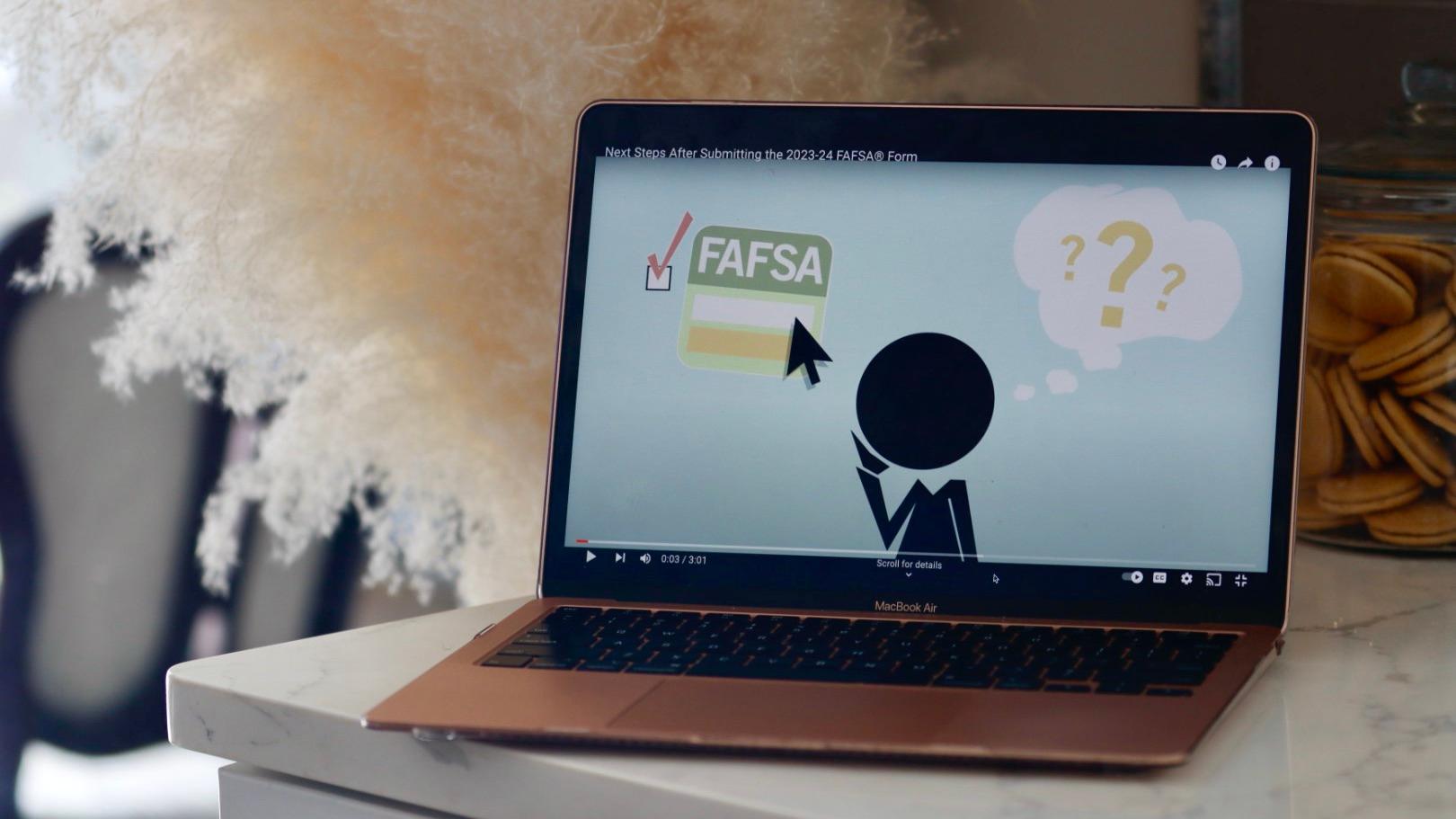Glitches prevent students with undocumented immigrant parents from applying for college
Editor’s note: Since this story was reported, the Department of Education has instructed students whose parents do not have social security numbers to complete their portion of the forms and submit it. They will still receive a notice the form is incomplete. When a workaround is ready in the first half of March, DoE says then students can complete the form.
Joanna Moreno Dimas has worked hard all four years at Bolingbrook High School, located in a town just outside of Chicago, Illinois. Now a graduating senior, she has her sights set on Illinois State University and a degree in elementary education.
But it won’t be cheap. In-state tuition, as well as room and board on campus, totals more than $34,000 a year, according to ISU.
“My mom works at a hotel. My dad has his own business,” Moreno Dimas said. “But, of course, sometimes there’s not a lot of work to go around.”
Like many in the US, she’s counting on financial aid to be able to afford college. And the only way to qualify is to fill out the newly released aid form known as FAFSA (Free Application for Federal Student Aid).
But unlike the hundreds of thousands of other students who have filled it out, Moreno Dimas’ form couldn’t be completed. A software glitch has been preventing her from completing the form and submitting it because her parents do not have social security numbers.
Moreno Dimas was born in the US, but her parents are undocumented. In previous years, parents without social security numbers could input all zeros. The new version did away with that and instead was supposed to allow parents to verify their identities online.
But it didn’t work.
After hitting dead end after dead end, Moreno Dimas called the FAFSA helpline.
“I called about seven times before I finally got someone. That was about three [or] four weeks ago now, and I still haven’t gotten any updates back. So I don’t know what to believe anymore.”
“I called about seven times before I finally got someone…,” Moreno Dimas said. “That was about three [or] four weeks ago now, and I still haven’t gotten any updates back. So I don’t know what to believe anymore.”
The Department of Education says it is aware of the problems and is working to resolve them. Meanwhile, the deadlines to say “yes” to college acceptance offers are looming.
The launch of the revamped federal student aid form was supposed to make getting help paying for college easier. In 2020, Congress ordered the Department of Education to overhaul the application because of complaints it was hard to use. Now, many students from immigrant families have been shut out.
“You’ll get to the point of the [FAFSA] website where you could fill out information, but then it takes you right back to the beginning to start over again and make you put in the social security number,” said Naomi, who asked that her last name not be used, fearing her undocumented mother could be deported. “But you already said that you didn’t have one. So the website’s just not helpful.”
Naomi, raised by a single parent, is determined to be the first in her family to get a college degree. She’s called and called the toll-free number for support.
“The first time I ever landed them on the phone, I was talking to this lady, and she said, ‘We need your mom to call us because you can’t be creating the account for her,’” Naomi recalled. “I was telling her, ‘I’m not trying to create the account for her. I’m trying to help her create the account.’”
Parents are responsible for filling out the FAFSA form, but prospective students often assist in the process. Naomi said her mother is unfamiliar with applying for financial aid and needed help navigating the website. Neither were able to get assistance online or on the phone.
Guadalupe is another student struggling with the application. She also asked her last name not be used because her parents are undocumented.
She wonders how much money will be left by the time their applications are processed, as federal aid is handed out until it’s gone. She’s been accepted to Northwestern University, an elite private school in Evanston, Illinois. Tuition only is $64,000 a year, but most students receive financial aid. That’s why submitting the FAFSA is so important.
“It keeps me up at night. Definitely keeps you up at night, like, thinking about it,” she said. “This process, it’s not helping immigrant parents at all …It’s not making it easier. It’s just making it harder.”
All three graduating seniors say they just want to be treated like any other student.
“We’re just kids trying to get our stuff done so we can go to college and pay for it,” Naomi said. “The only difference is that our parents don’t have social security numbers. And I feel like that shouldn’t separate us from getting help.”
